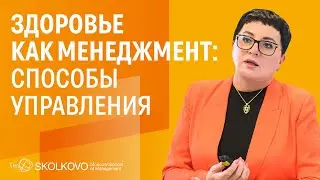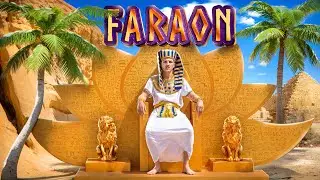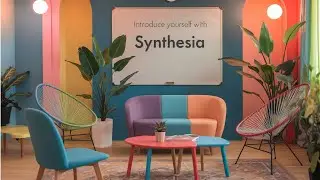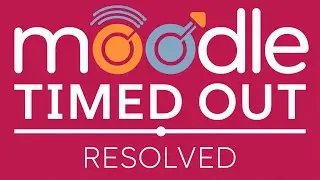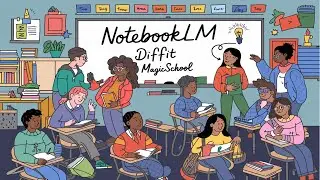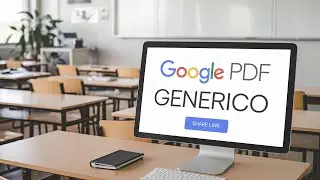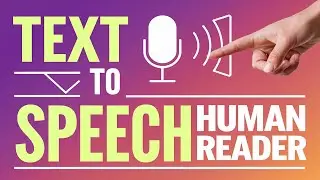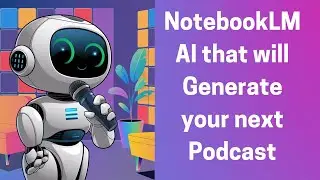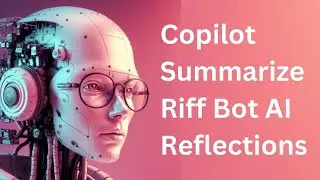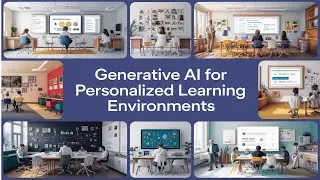How to Create Reading and Writing Activities from a NotebookLM Podcast
#education #notebooklm #Google #diffit #magicschool #notebooklm #podcast #efl
Dr. Nellie Deutsch introduces Google NotebookLM as a powerful tool for enhancing language learning, specifically for EFL and English learners. She begins by demonstrating how to create a new notebook, where users can import various types of content, including websites, YouTube videos, Google Docs, and Google Slides, to build resources. This setup allows teachers to create customized content and resources for beginner learners, ensuring materials remain at an accessible language level.
To make learning interactive, she suggests using podcasts to practice listening and comprehension. Before students engage with audio material, she recommends reviewing vocabulary to support their understanding. Through Google NotebookLM, teachers can upload text or vocabulary lists directly, which the platform quickly uses to generate resources. With the “Diffit” feature, teachers can add articles, vocabulary lists, and other educational materials to develop dynamic, interactive lessons for adult learners.
Deutsch demonstrates that Diffit can transform resources into various activities, like reading passages and multiple-choice questions, helping teachers adapt content to different learning needs. With Diffit, teachers can also generate vocabulary-based exercises by extracting words from the text, creating vocabulary lists that correlate directly with lesson material. This ensures that AI-generated content stays accurate and relevant, minimizing AI “hallucinations” or content errors.
Writing activities are another key area, as Dr. Deutsch shows how teachers can customize prompts to reinforce vocabulary in practical writing exercises. She highlights options like the Frayer model, which helps students engage with new words through definitions, examples, and applications. These activities allow students to practice writing while building confidence with new vocabulary, making the experience immersive and educational.
Returning to the podcast content, she suggests comprehension questions to help students understand Maria’s daily routine, encouraging them to focus on details such as the time Maria wakes up or how she spends her day. These questions promote engagement and can be further customized using Diffit. Additionally, teachers can create downloadable resources like PDFs and PowerPoint presentations, which integrate easily with platforms like Google Classroom for a seamless learning environment.
Dr. Deutsch then demonstrates how MagicSchool—a complementary platform—provides a wide range of tools for creating customized learning experiences. Teachers can use MagicSchool to add vocabulary, grammar, and comprehension exercises, supporting structured language practice. MagicSchool also allows educators to set up interactive student rooms where learners can engage with chatbots like “Tutor Me” AI, which guides them through text, offers reading comprehension support, and provides vocabulary practice.
Through MagicSchool's room feature, educators can control parameters like the number of participants and interaction types. Adding specialized chatbots lets students receive additional support, practicing reading and comprehension skills independently or in groups. This setup provides flexibility, catering to various classroom sizes and learning environments, while enabling teachers to add specific content for focused practice.
The bot interaction system in MagicSchool facilitates a simulated conversation where students answer questions based on the text, such as Maria’s daily routine. Through repeated questioning, the AI reinforces comprehension and helps students recall details from the lesson. For instance, when a student correctly identifies the time Maria wakes up, the bot provides positive reinforcement, motivating learning through feedback.
Deutsch concludes by bringing together NotebookLM, Diffit, and MagicSchool, highlighting how each tool serves unique functions in enhancing English learning. NotebookLM is excellent for creating podcast-based content, Diffit offers printable worksheets, and MagicSchool provides engaging, chatbot-driven activities. Combined, these tools offer a comprehensive approach that enables students to engage with learning material from multiple perspectives. Dr. Deutsch encourages viewers to explore these tools and reach out with questions, emphasizing that each question contributes to a better understanding and improvement in language learning techniques.
ChatGPT can ma




